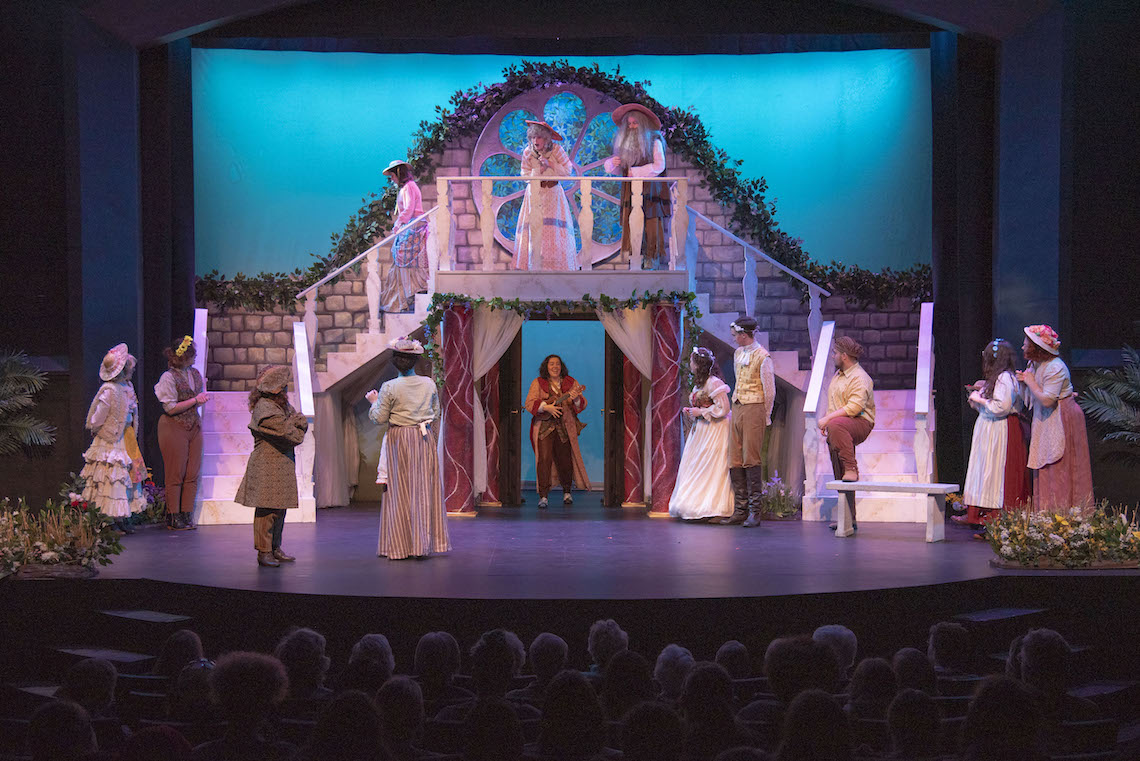
In a play about second chances, one cast member is making the most of his own second chance.
Matthew Balfour is a junior in the Musical Theatre program at the University of Southern Maine. He first performed “The Winter’s Tale” as a high school student at Thornton Academy in Saco. Five years later, he’s back at it.
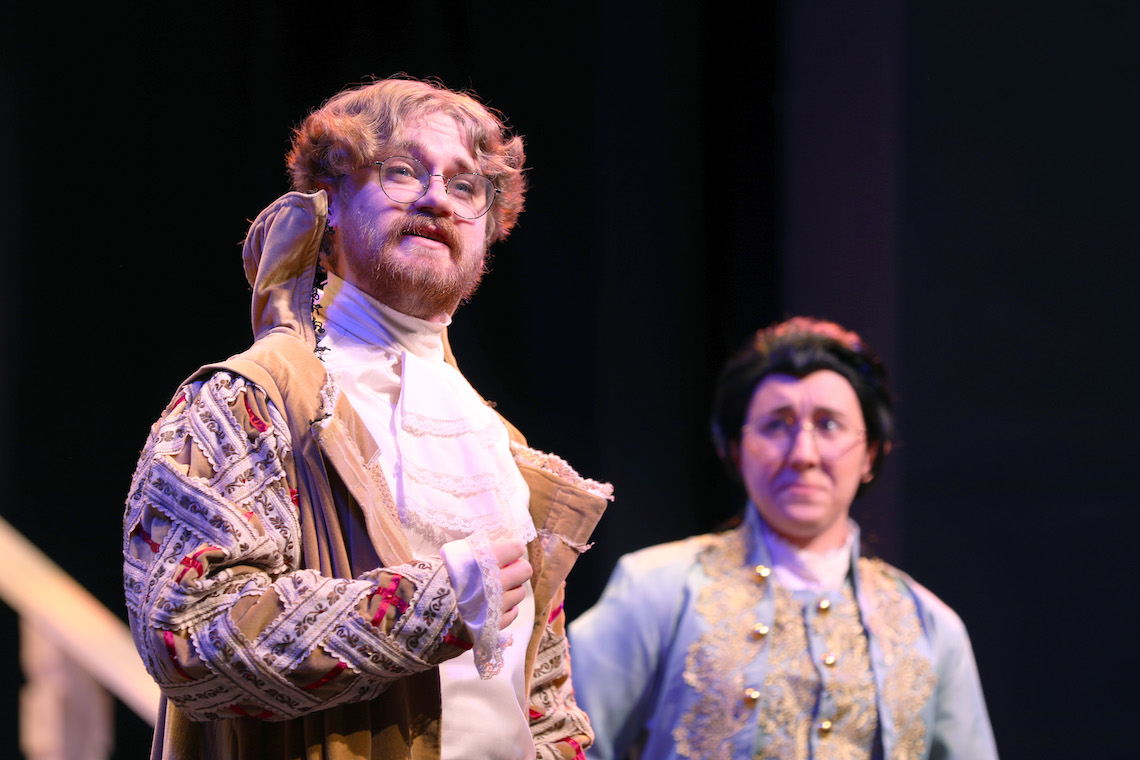
USM’s version of the Shakespearean classic is the Theatre Department’s first production of the fall semester. A preview showing on November 1 played to a select audience at Russell Hall in Gorham. In a change from his supporting role in high school, Balfour is now one of the leads. And his understanding of the play’s themes has grown along with his stage time.
“People can do bad things. And how do we forgive people when they’ve done those bad things?” Balfour asked. “Sometimes it takes time and someone truly saying, ‘Hey, I was wrong.’ And that doesn’t make the things that they did okay. But we can learn to forgive.”
As Polixenes, Balfour plays the victim of a false accusation. The friendliness he shows to his best friend’s wife is mistaken for adultery. Under threat of execution, Polixenes flees to his home country. But the former friends must find a way to swallow their anger when romance blooms between their children.
The accuser is Leontes, played by Lucious K. Fox. He’s a junior working toward a double major in Theatre and Social Work. Fox draws on skills from both programs to inform his character’s struggle with conflict resolution.
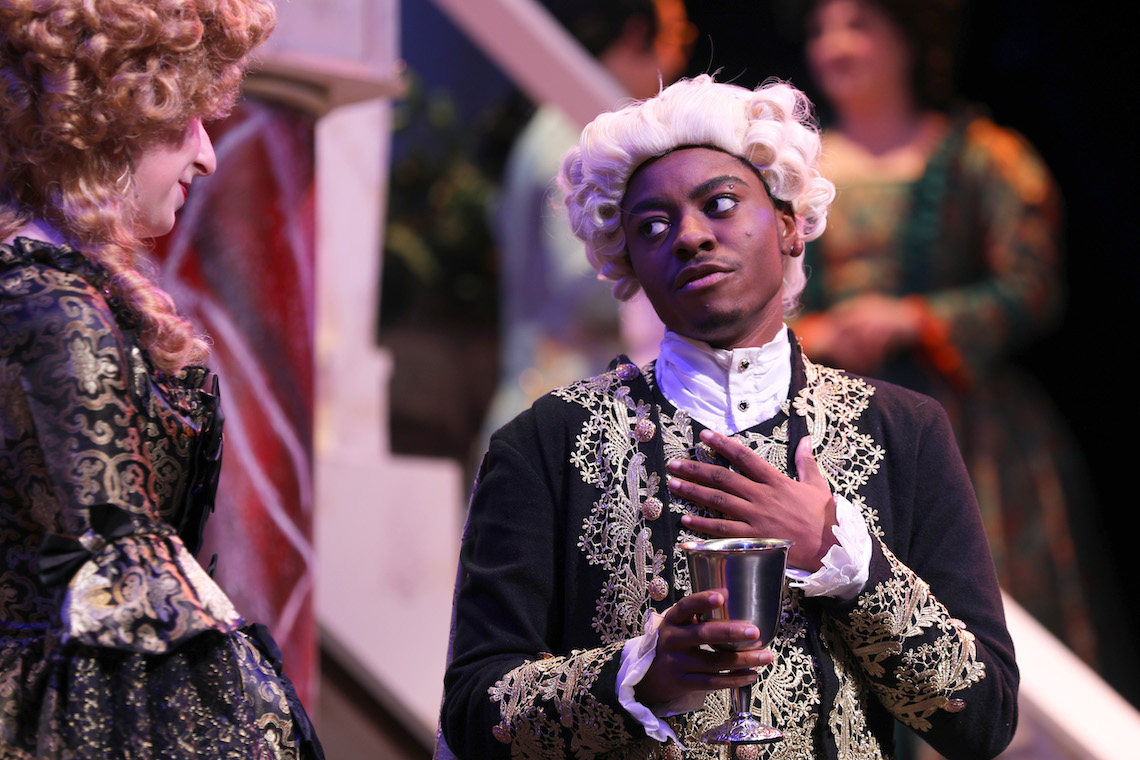
Hollywood, however, did not help much with Fox’s research into his role. Unlike “Hamlet” or “Macbeth,” “The Winter’s Tale” is rarely adapted beyond the stage. Fox found a few recordings of community theater productions for reference. But without a big-name actor attached to the role, Fox saw an opening for himself.
“I could take it in an entirely different direction than even Shakespeare had intended because no one has anything quite to compare it to and it can just be mine,” Fox said. “It’s fun and I’m very excited to be sort of the basis of this character for people.”
A less obscure play might give its cast a break from so much intensive memorization with a well-known speech like Juliet’s lament beginning with “Wherefore art thou, Romeo.” Not so with “The Winter’s Tale.” Its most famous quote isn’t even a spoken line, but rather a stage direction: “Exit, pursued by a bear.”
Director Tess Van Horn knows expectations for the scene will be running high. She credits the prop department for coming up with an appropriately furry solution. But their craftsmanship only goes so far. Only imagination can complete the illusion.
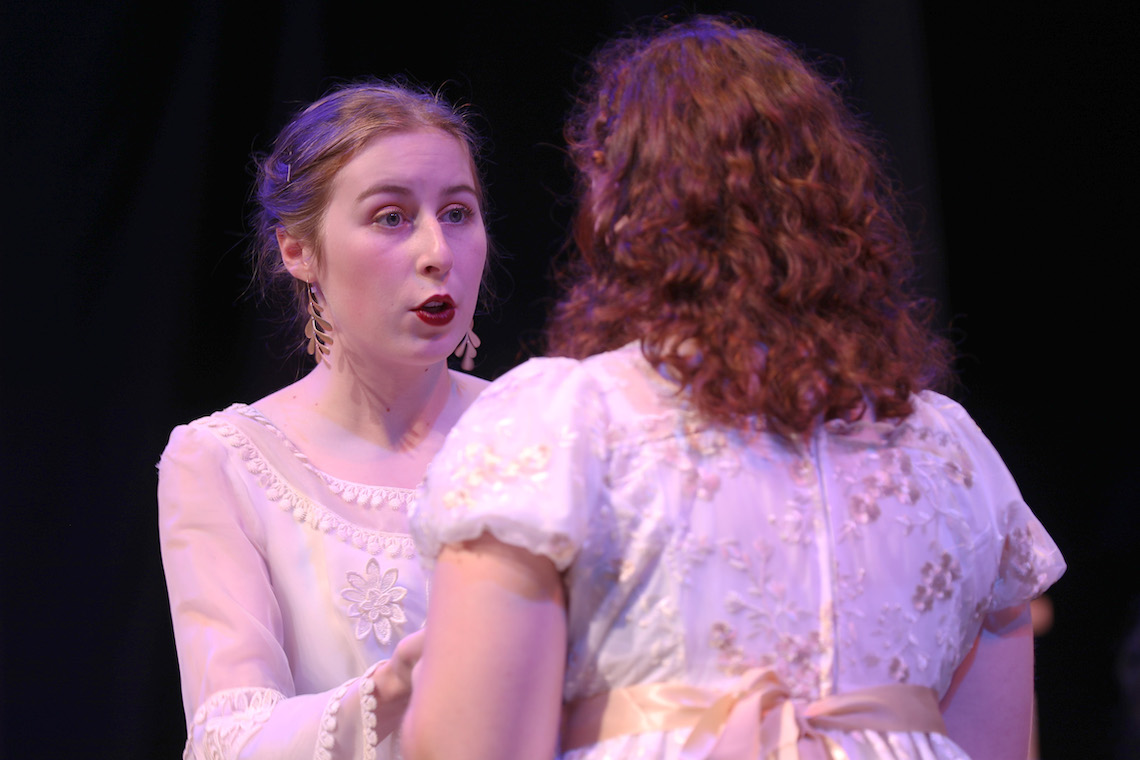
“So long as the actors on stage are believing the world that they’re in, the audience is going to believe it, too,” Van Horn said.
The passage of time was another tricky illusion to pull off. About 16 years elapse between two pivotal scenes, made evident by a change in fashion. Van Horn intentionally set the first half of the play in late 18th century with its preference for richly brocaded fabric and lace trim. By the second half, the costumes reflect the looser style of the early 19th century.
Most experts believe Shakespeare wrote “The Winter’s Tale” late in his career, circa 1610. His output from that period tends to be harder to categorize than his earlier plays that skewed more clearly toward comedy, tragedy, or history.
“The Winter’s Tale” can seem like two plays in one. It starts with paranoia, attempted murder, and a bear mauling, while the later scenes indulge in romance, dancing, and a few racy jokes. The huge tonal shifts allow the cast show their range.
“It’s been fun to say, ‘Let’s do everything,’ Van Horn enthused. “This scene feels like a courtroom drama, this scene feels like a rom com, this scene feels like very much a tragedy. Why not engage and explore all of those genres together. Who says we can’t?”
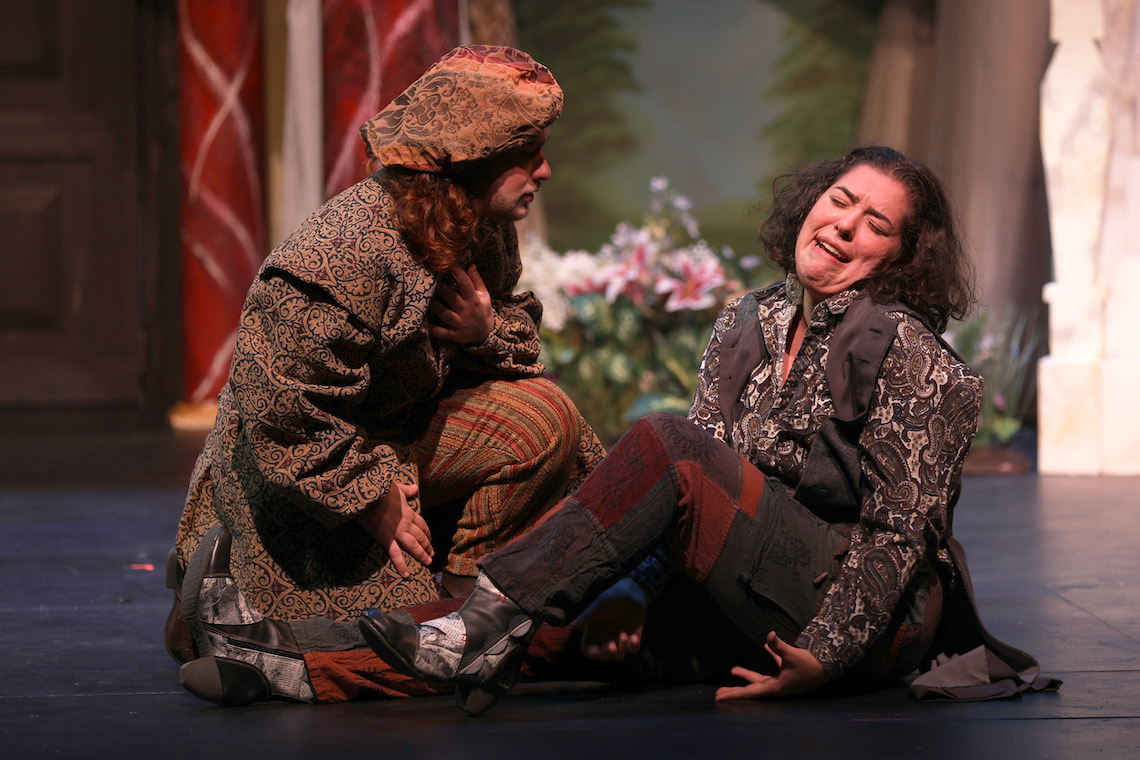
Despite the play’s literary pedigree, Van Horn insists that no one should fear getting lost in Shakespeare’s language. Her cast did all the homework for the audience. They worked hard to convey the meaning of the words through their performances while keeping the beauty of the poetry intact.
The first performance in front of a paying audience is set for Thursday night, November 2. A full schedule of evening and matinee shows will run through the next two weekends. Tickets are available online. To get the most out of the experience, a cast member offers some simple advice.
“Go into it with an open mind,” Fox said. “Go into it without thinking that there are any bad guys inherently or that there are any good guys, that everyone is just human. Other than the bear, of course.”

